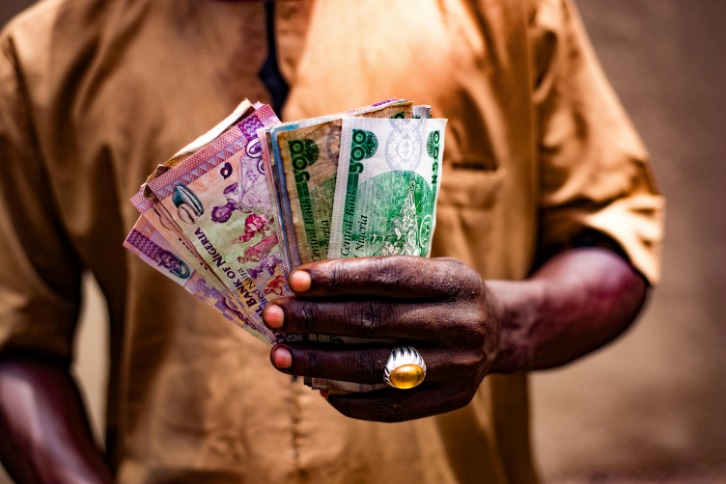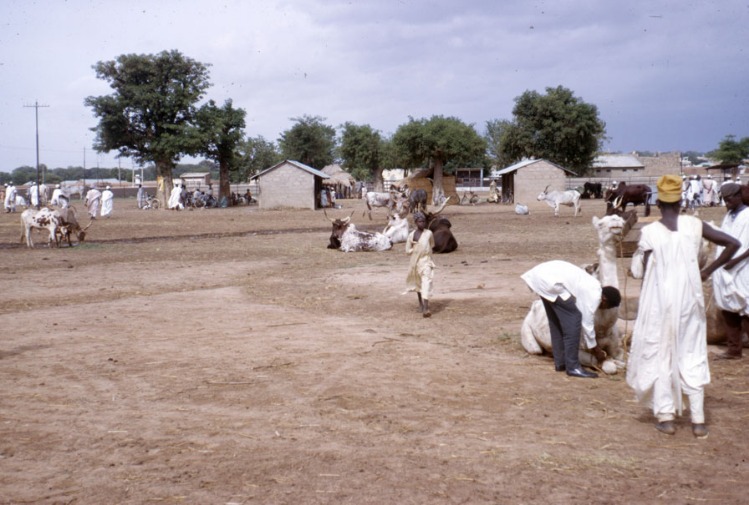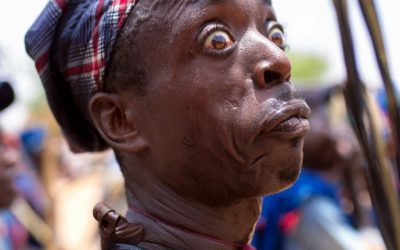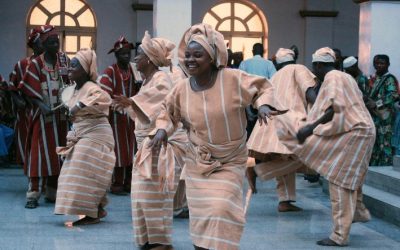Overview of the Black Market for Dollar to Naira Exchange
The Black Market for Dollar to Naira exchange in Nigeria plays a significant role in the country’s Economy, especially amidst currency fluctuations and economic uncertainties. Many Nigerians turn to this unofficial market to access foreign currency at rates often different from the official rates, impacting various sectors including businesses, expatriates, and individuals. Understanding the dynamics of this black market is crucial for comprehending Nigeria’s currency exchange landscape and its implications on the broader economy.
Definition and Characteristics of the Black Market
The black market for dollar to naira exchange in Nigeria is an informal and unregulated marketplace where individuals and entities buy and sell foreign currency outside official channels. This market has become prominent due to strict currency controls, shortages of foreign currency, and economic instability, leading many to seek alternative avenues for currency exchange.
Definition and Characteristics of the Black Market:
- Unregulated and Illegal: Transactions occur outside the official banking and currency exchange systems, often violating government regulations.
- Fluctuating Exchange Rates: Rates are typically higher than the official rates and can fluctuate rapidly based on market demand and supply.
- Limited Oversight: Lack of oversight means there are no consumer protections, making transactions riskier for participants.
- Cash-Based Transactions: Mostly conducted in cash, without formal documentation, increasing the potential for fraud and counterfeit currency.
- High Demand and Supply Imbalance: Driven by economic challenges, scarcity of foreign currency in official channels, and high demand for US dollars for various transactions.
Reasons for the Existence of the Black Market
The black market for dollar to naira exchange in Nigeria exists due to multiple economic and financial factors. It primarily arises from the scarcity of foreign exchange in official channels, leading individuals and businesses to seek alternative means of obtaining USD. The foreign exchange restrictions imposed by the Central Bank of Nigeria often limit access to dollars through official avenues, creating a supply gap. Additionally, high demand for foreign currency, driven by imports, travel, and investment needs, exceeds the available official supply, fueling the black market. Exchange rate disparities between official rates and black market rates also incentivize unofficial trading. Overall, the black market operates as a response to currency control policies, economic instability, and the need for immediate access to foreign currency in Nigeria.
Factors Influencing the Dollar to Naira Exchange Rate in Nigeria
The dollar to naira exchange rate in Nigeria’s black market is influenced by a complex interplay of economic, political, and social factors. These elements determine the supply and demand dynamics, affecting how much naira is exchanged for one US dollar outside official channels. Understanding these factors is essential for grasping the fluctuations and trends in the black market rate, which often departs from the official exchange rate and impacts everyday transactions and the broader economy.
Economic Policies and Government Regulations
Economic policies and government regulations play a significant role in shaping the dollar to naira exchange rate in Nigeria’s black market. The Central Bank of Nigeria’s monetary policies, including forex restrictions and currency management strategies, directly impact the availability and value of foreign exchange. Regulations that limit official dollar supplies often drive demand towards the black market, influencing rates in that informal sector. Additionally, policies such as capital controls, import restrictions, and foreign currency management measures can create disparities between the official and black market rates. Government efforts to stabilize the economy, control inflation, and encourage foreign investment also affect investor confidence and, consequently, the exchange rate. Overall, the interplay of economic policies and government regulations creates fluctuations and disparities observed in the black market dollar to naira exchange rate.
Foreign Exchange Reserves and Monetary Policy
The exchange rate between the dollar and the naira in Nigeria’s black market is influenced by various factors, notably foreign exchange reserves and monetary policy. These elements play a pivotal role in determining the stability and fluctuations of the black market rate, which often deviates from official exchange rates.
- Foreign Exchange Reserves: Nigeria’s foreign exchange reserves impact the ability of the Central Bank to intervene in the forex market. Higher reserves can bolster confidence and stabilize the naira, potentially narrowing the gap between official and black market rates. Conversely, dwindling reserves often lead to increased black market activities as demand for dollars outpaces supply.
- Monetary Policy: The Central Bank’s monetary policy decisions, such as adjustments to interest rates, cash reserve requirements, and foreign exchange interventions, directly influence the dollar to naira rate. Tight monetary policy can reduce inflation and stabilize the naira, while loose policy may lead to currency depreciation, encouraging black market trading.
Market Demand and Supply Dynamics
The dollar to naira exchange rate in Nigeria’s black market is heavily influenced by market demand and supply dynamics. When the demand for foreign currency, especially the US dollar, increases among individuals, businesses, and investors, and the supply remains limited, the exchange rate tends to rise, making the naira weaker relative to the dollar. Conversely, if the supply of dollars surges due to increased dollar inflows from exports, remittances, or foreign investments, and demand remains steady or declines, the naira may strengthen against the dollar. These fluctuations are often intensified by economic factors such as Nigeria’s foreign reserves, government policies, and global economic conditions. The black market responds swiftly to these shifts, causing rapid changes in the dollar to naira rate based on perceived scarcity or abundance of dollars in the currency exchange ecosystem.
Political Stability and Economic Uncertainty
The dollar to naira exchange rate in Nigeria’s black market is significantly affected by political stability and economic uncertainty. Political stability fosters investor confidence, leading to a more favorable exchange rate, while political unrest or instability often causes the naira to depreciate against the dollar. Economic uncertainty, such as inflation, currency devaluation, and inconsistent government policies, also plays a crucial role. When economic conditions are unpredictable, demand for foreign currency like the dollar tends to increase, pushing the black market rate upward. Conversely, a stable political environment combined with sound economic policies can help stabilize the naira and reduce exchange rate volatility in the black market.
Current Trends and Exchange Rate Fluctuations
The exchange rate between the US dollar and the Nigerian naira continues to experience significant fluctuations, influenced by various economic factors and market dynamics. In the black market, these trends often reflect wider economic uncertainties, political developments, and changes in government policies. Understanding current trends in dollar to naira exchange rates is crucial for investors, traders, and individuals who rely on currency conversions for their financial activities in Nigeria.
Recent Rate Movements in the Black Market
Recent trends in the dollar to naira exchange rate in the Nigerian black market reveal significant fluctuations influenced by various economic and political factors. Over the past few months, the exchange rate has experienced rapid changes, reflecting market perceptions, supply and demand dynamics, and government policies. Exchange rate movements in the black market often diverge from official rates, creating a parallel market that reacts quickly to economic uncertainties.
Currently, the black market rate for the dollar to naira has seen upward pressure, with rates fluctuating between 850 to 950 naira per dollar in recent weeks. These movements are driven by factors such as forex scarcity, reduced dollar inflows, and inflationary pressures domestically. Traders and users in the black market closely monitor these rate shifts, which impact importation costs, remittances, and daily transactions.
Despite government efforts to tighten control on forex markets, black market rates tend to operate independently, often showing more volatility than official rates. Staying updated on these recent rate movements is crucial for businesses and individuals involved in currency exchanges in Nigeria, as it influences economic decisions and financial stability.
Comparison with Official Exchange Rates
Current trends in the dollar to naira exchange rate in Nigeria’s black market reveal significant fluctuations driven by economic factors, currency policies, and market speculation. These fluctuations often differ substantially from official exchange rates, highlighting the disparity between the official and unofficial currency markets.
- In recent months, the black market dollar to naira rate has experienced rapid increases, sometimes surpassing the official rate by over 100%.
- Market traders and currency speculators influence these fluctuations based on supply and demand dynamics and Nigeria’s economic stability.
- Authorities’ policies and foreign exchange controls often contribute to the divergence, with official rates remaining relatively stable, but the black market reacting swiftly to economic news.
- Comparison with official rates shows that the black market premium can reach several times the official rate, affecting importers, travelers, and the general economy.
- Despite government intervention and attempts to control the forex market, black market rates tend to reflect a more accurate picture of currency scarcity and economic sentiment.
Impact of Global Economic Factors
Current trends in the dollar to naira exchange rate, particularly in Nigeria’s black market, are influenced by various global economic factors and local economic conditions. These fluctuations often reflect broader international financial dynamics and domestic economic stability, affecting consumers, businesses, and investors alike.
- Global oil prices significantly impact the naira’s value since Nigeria’s economy heavily depends on oil exports. A decline in oil prices can lead to a weaker naira against the dollar.
- Changes in the U.S. Federal Reserve’s monetary policy, such as interest rate hikes or cuts, influence the dollar’s strength globally, thereby affecting the dollar-naira exchange rate.
- Global economic uncertainties, including geopolitical tensions or recession fears, tend to strengthen the US dollar as investors seek safe-haven assets, causing the naira to weaken on the black market.
- Foreign investment flows, remittances, and trade balances also play critical roles. Reduced foreign direct investment or remittances can devalue the naira, especially in a volatile exchange environment.
- Local policies such as forex regulations, central bank interventions, and official exchange rate policies impact the black market rate, sometimes leading to significant divergence from official rates.
Impact of the Black Market on Nigeria’s Economy
The black market for dollar to naira exchange in Nigeria has a profound impact on the country’s economy. It influences currency stability, inflation rates, and access to foreign currencies for both individuals and businesses. Understanding the dynamics of this unregulated market is crucial to grasping the broader economic challenges Nigeria faces today.
Effects on Inflation and Purchasing Power
The black market for US dollars in Nigeria significantly influences the country’s economy, particularly through its impact on inflation and residents’ purchasing power. The prevalence of dollar-to-naira transactions outside official channels creates distortions that affect various economic factors.
- Unregulated exchange rates in the black market often lead to a disparity between official and unofficial dollar-to-naira rates, resulting in increased uncertainty for traders and consumers.
- Higher black market dollar rates can cause imported goods and services to become more expensive, fueling inflation across multiple sectors.
- As the naira depreciates in the black market, Nigerians face reduced purchasing power, making everyday goods and essential services less affordable.
- The surge in black market transactions reduces government control over currency flow and monetary policy, complicating efforts to stabilize inflation.
- Persistent currency devaluation due to black market activities can discourage foreign investment, further straining Nigeria’s economic growth.
- Increased reliance on the black market for forex exchange often leads to a cycle of inflation that diminishes the standard of living for many Nigerians.
Impact on Businesses and Investors
The black market for dollars to naira in Nigeria significantly affects the country’s economy by creating distortions in the official exchange rates and undermining economic stability. This illicit trading fosters inflation, devalues the local currency, and complicates monetary policy implementation, making it difficult for the government to control inflation and attract foreign investment. For businesses, the existence of a vibrant black market increases operational uncertainties, leads to unpredictable costs, and facilitates illegal financial activities. Investors face increased risks as the disparity between official and black market rates can erode profit margins and create challenges in repatriating earnings, ultimately diminishing confidence in Nigeria’s financial environment and discouraging foreign direct investment. Overall, the black market for dollars to naira contributes to economic instability, weakens formal financial institutions, and hampers Nigeria’s long-term growth prospects.
Government Efforts to Curb Black Market Activities
The black market for dollars to naira in Nigeria has significant implications on the country’s economy. It undermines official currency policies, leads to inflated exchange rates, and fosters corruption and illicit activities. The widespread use of the black market causes a depreciation of the naira, reducing the value of savings and increasing the cost of imported goods. Moreover, it hampers government efforts to stabilize the economy and manage foreign exchange reserves effectively. In response, Nigerian authorities have implemented measures such as currency restrictions, increased surveillance, and public awareness campaigns to combat black market activities. However, the persistent demand for foreign currency and regulatory challenges continue to hinder comprehensive solutions. Addressing the black market remains crucial for Nigeria to achieve economic stability and foster transparent financial practices.
Methods of Currency Exchange in the Black Market
In Nigeria, the black market for currency exchange, particularly for converting US dollars to Naira, is a significant aspect of the country’s financial landscape. Due to stringent foreign exchange regulations and limited official channels, many individuals and businesses rely on unofficial methods to obtain or trade foreign currency. These methods include peer-to-peer exchanges, money brokers, and informal networks that operate outside the formal banking system. Understanding these various exchange methods sheds light on how people navigate Nigeria’s complex currency market and the impact on the local economy.
Buying and Selling Procedures
In the Nigerian black market, currency exchange for dollars to naira involves various methods and procedures that differ from official channels. These exchanges are often conducted informally, with buyers and sellers engaging directly to determine the rate and transaction terms, bypassing legal financial institutions.
Methods of currency exchange in the black market include:
- Direct cash exchanges at street locations or underground markets.
- Over-the-counter transactions with unlicensed currency dealers.
- Peer-to-peer (P2P) platforms facilitated through social media or messaging apps, where listings for buying and selling dollars are posted and negotiated.
- Informal networks where trusted contacts facilitate currency swaps.
Buying and selling procedures generally follow these steps:
- Identify a trusted dealer or peer through informal networks or online platforms.
- Negotiate the exchange rate, which can fluctuate daily based on supply and demand.
- Agree on the transaction amount and method of payment, often cash or mobile money transfers.
- Complete the exchange discreetly, ensuring both parties verify the currency exchanged.
- Record the transaction details, especially if multiple trades are conducted regularly.
Despite the prevalence of these methods, it is important to note that black market currency exchange is illegal and risky, with potential penalties involving fines or imprisonment.
Key Players and Market Participants
In Nigeria, the black market for currency exchange, particularly for US dollars to Nigerian Naira, operates through various unofficial channels outside regulated financial institutions. These methods often involve private individuals, currency brokers, and unregistered exchangers who facilitate the exchange of currency at rates different from the official rates, often more favorable to market supply and demand conditions.
Methods of Currency Exchange in the Black Market include informal transactions conducted face-to-face or through clandestine digital platforms, often using messaging apps or social media for negotiations. Exchangers may operate in designated markets, specific neighborhoods, or through networks that communicate via word of mouth or encrypted online channels. These transactions typically lack official oversight, making them riskier for both parties involved.
Key participants and market participants in the black market for dollar to naira include:
- Currency Brokers and Hustlers: Individuals who buy and sell foreign currencies, often making profits from the spread between buying and selling rates.
- Money Changers: Informal operators who facilitate cash exchange, often found in open markets or specific hotspots.
- Government Officials and Guards: Sometimes involved due to corruption, they may offer protection or facilitate access to currency exchanges.
- Business Owners and Traders: Who require foreign currency for import/export activities and may resort to black market sources when official channels are limited or expensive.
- Foreigners and Diaspora Community: Engaging in black market exchanges to send remittances or cover expenses where official channels are inaccessible or impose high fees.
Risks Associated with Black Market Currency Exchange
Methods of currency exchange in the black market for dollar to naira in Nigeria vary widely, often involving informal and unregulated practices. These methods are typically sought by individuals or businesses needing quick access to foreign currency outside official channels. However, engaging in black market currency exchange poses significant risks that should be carefully considered.
- Peer-to-peer (P2P) trading: Individuals buy and sell dollars directly with others, often via messaging apps or unregulated online platforms.
- Currency dealers: Unlicensed operators who offer foreign currency at rates different from official rates, usually in hidden markets or informal locations.
- Forex traders at local markets: Street vendors or traders who facilitate currency exchange at unofficial booths or stalls.
- Online black market platforms: Certain websites or social media groups where currency is exchanged covertly among users.
The risks associated with black market currency exchange are substantial and include:
- Legal consequences: Engaging in illegal currency transactions can lead to arrest, fines, or imprisonment under Nigerian laws.
- Financial loss: The risk of counterfeit currency, scams, or unfair transactions that result in monetary loss.
- Fraud and scams: Black market operators may deceive traders or disappear after collecting money without delivering currency.
- Market volatility: Exchange rates in the black market are highly unpredictable, leading to potential financial instability.
- Lack of consumer protection: Unlike official channels, black market transactions offer no safeguards or recourse for disputes or issues.
Legal and Policy Framework
The legal and policy framework surrounding currency exchange in Nigeria plays a crucial role in shaping the black market for dollar to naira transactions. Understanding the regulations, restrictions, and policies established by the government and financial authorities is essential to comprehend the dynamics of the informal currency exchange sector. This framework influences exchange rates, market practices, and the accessibility of foreign currency for individuals and businesses operating outside official channels.
Government Regulations and Enforcement Measures
The legal and policy framework surrounding the exchange of dollars to naira in Nigeria, particularly in the black market, is complex and influenced by various government regulations and enforcement measures. The Central Bank of Nigeria (CBN) is the primary regulatory authority responsible for overseeing foreign exchange transactions, setting policies to regulate currency exchange and prevent illegal activities. These policies aim to maintain economic stability, control inflation, and prevent money laundering, but they often create a restrictive environment that drives robust black market activity.
- The Central Bank of Nigeria has established official exchange rates for foreign currency transactions, but these rates are often diverging significantly from black market rates due to supply and demand factors.
- Regulations restrict access to foreign currency through official channels, pushing many individuals and businesses to seek alternative exchange options on the black market.
- Government enforcement measures include raids on illegal currency dealers, monitoring of financial transactions, and the imposition of penalties on non-compliant entities.
- Despite these measures, enforcement is challenging due to the large volume of cash-based transactions and the informal nature of black market currency exchange.
- Legal reforms and policy adjustments are periodically introduced to stabilize the foreign exchange market, but market forces often override these efforts, sustaining the black market activity.

Overall, the interplay between government regulations, enforcement efforts, and market dynamics continues to shape the landscape of dollar to naira exchange in Nigeria’s black market, impacting economic activities and currency stability.
Legal Risks for Participants
The legal and policy framework surrounding the dollar to Naira exchange in the Nigerian black market is complex and fraught with risks for participants. Nigeria’s foreign exchange regulations, primarily governed by the Central Bank of Nigeria, strictly control currency exchange activities, aiming to curb illegal trading and money laundering. Engaging in black market currency exchange often involves violating these regulations, exposing participants to legal sanctions. Legal risks include arrest, prosecution, and hefty fines for unauthorized currency transactions. Additionally, participants face potential confiscation of funds and asset forfeiture if caught trading outside official channels. The lack of legal protections in unregulated markets also increases exposure to fraud, theft, and exploitation. Consequently, individuals and businesses involved in black market dollar to Naira exchange do so at significant legal peril, underlining the importance of operating within the formal financial system to mitigate these risks.
Potential Reforms and Future Outlook
The legal and policy framework surrounding the dollar to naira exchange rate in Nigeria’s black market is often characterized by ambiguity and limited regulation. The official foreign exchange policies aim to stabilize the naira through central bank interventions, but these efforts often create disparities between official and black market rates. Potential reforms include the liberalization of exchange controls, enhanced transparency in forex trading, and the adoption of a more flexible currency management system. Such measures could bridge the gap between official and black market rates, reducing illegal trading. The future outlook will likely depend on Nigeria’s economic stability, governance reforms, and global oil market trends, which influence forex supply and demand. A more transparent and integrated forex policy could help stabilize the naira and curb the influence of the black market, fostering a more balanced and predictable currency environment in Nigeria.
Resources and Tips for Currency Exchange
Exchanging currency, especially dollars for Naira in Nigeria’s black market, can be challenging but manageable with the right resources and tips. Understanding the most reliable sources and strategies can help you get the best rates and avoid scams. Whether you’re a traveler, expatriate, or business person, being informed about current trends and safe practices is essential for a smooth currency exchange experience.
How to Identify Reliable Dealers
When exchanging dollars to naira in the Nigerian black market, it is essential to use reliable resources and follow certain tips to ensure a safe transaction. Start by researching the current exchange rates from multiple sources such as online forums, social media groups, or trusted local contacts to get an accurate idea of the prevailing rates. Always verify the credibility of dealers before conducting any exchange to avoid scams or counterfeit currency. You can identify reputable dealers by seeking recommendations from trusted community members or former customers who have had positive experiences. Look for traders who display professionalism, such as visible identification or a consistent track record of reliable transactions. It is also advisable to compare the rates offered by different dealers and avoid those with rates significantly outside the market average, as this could indicate suspicious activity. Conduct transactions in safe, public locations and, if possible, use secure, cashless methods to minimize risks. Ultimately, exercising caution, doing thorough research, and choosing established dealers will help ensure a safe and fair dollar to naira exchange in Nigeria’s black market.
Precautions to Avoid Scams and Counterfeit Currency
When exchanging dollars to Naira in the black market in Nigeria, it is essential to be well-informed about the available resources and strategic tips to ensure a smooth transaction. Reliable sources such as reputable currency exchange forums, social media groups, and local trusted dealers can provide current exchange rates and market insights. It is advisable to compare rates across multiple vendors to find the most favorable deal. Always verify the credibility of the seller before proceeding with any transaction, and consider seeking recommendations from trusted contacts or online reviews. Using cash rather than digital transactions can reduce the risk of fraud in informal markets. Additionally, staying aware of daily exchange rate fluctuations helps you determine the right time to exchange your currency for optimal value.
To avoid scams and counterfeit currency, always scrutinize the bills carefully. Genuine Naira notes have specific security features, including watermarks, security threads, and color-shifting inks. When dealing in the black market, it’s safer to conduct transactions in well-lit, public places rather than secluded areas. Never accept overly high or suspiciously low rates, and avoid transactions that seem too good to be true. Trust your instincts; if something feels off, it’s better to decline. Some traders recommend carrying a small amount of verified, authentic currency for testing purposes before completing larger exchanges. By being cautious and well-informed, you can protect yourself from potential scams and counterfeit bills while navigating the dollar to Naira exchange in Nigeria’s informal markets.
Alternative Ways to Access Foreign Currency Legally
When exchanging dollars to Naira in Nigeria, especially in the black market, it’s essential to stay informed about the current rates and reliable sources. Using official channels like banks and authorized currency exchange offices ensures legal and secure transactions. However, these often have lower rates compared to black market rates, so understanding alternative methods can be beneficial. Online platforms and financial apps that facilitate remittances can also provide access to foreign currency at competitive rates within legal boundaries. Additionally, participating in currency exchange forums and staying updated on market trends can help you make informed decisions. Always verify the credentials of money changers and avoid transactions that seem suspicious to prevent scams and legal issues.





0 Comments